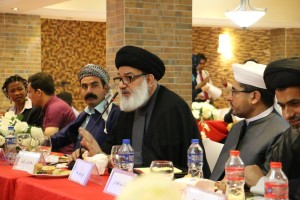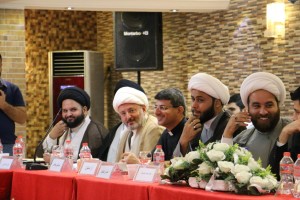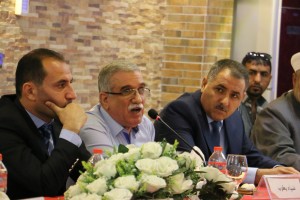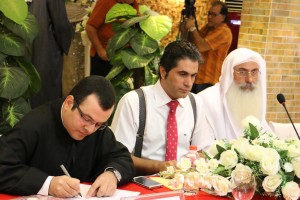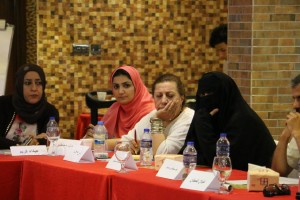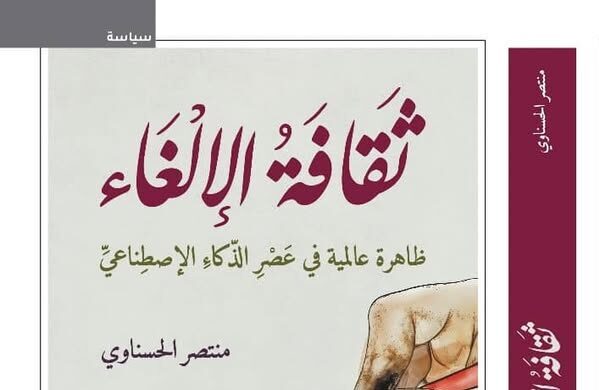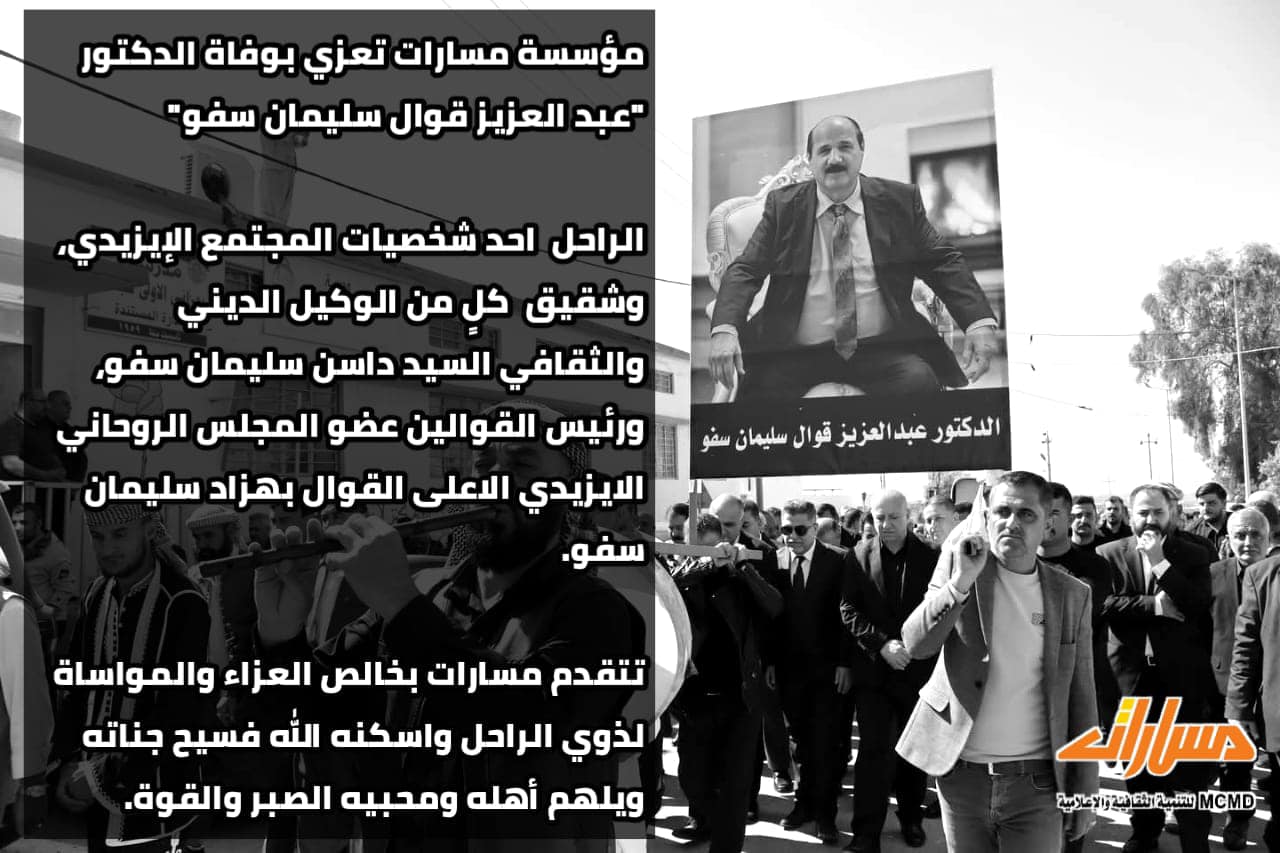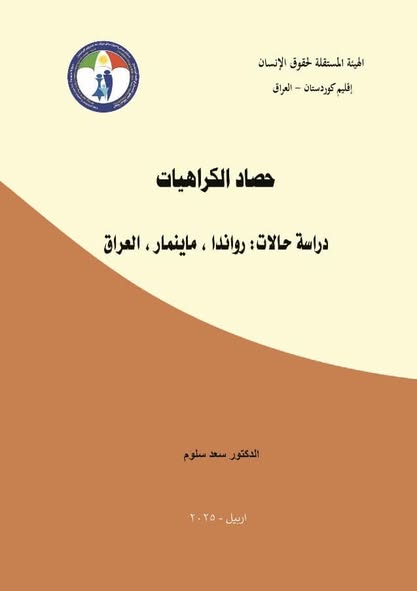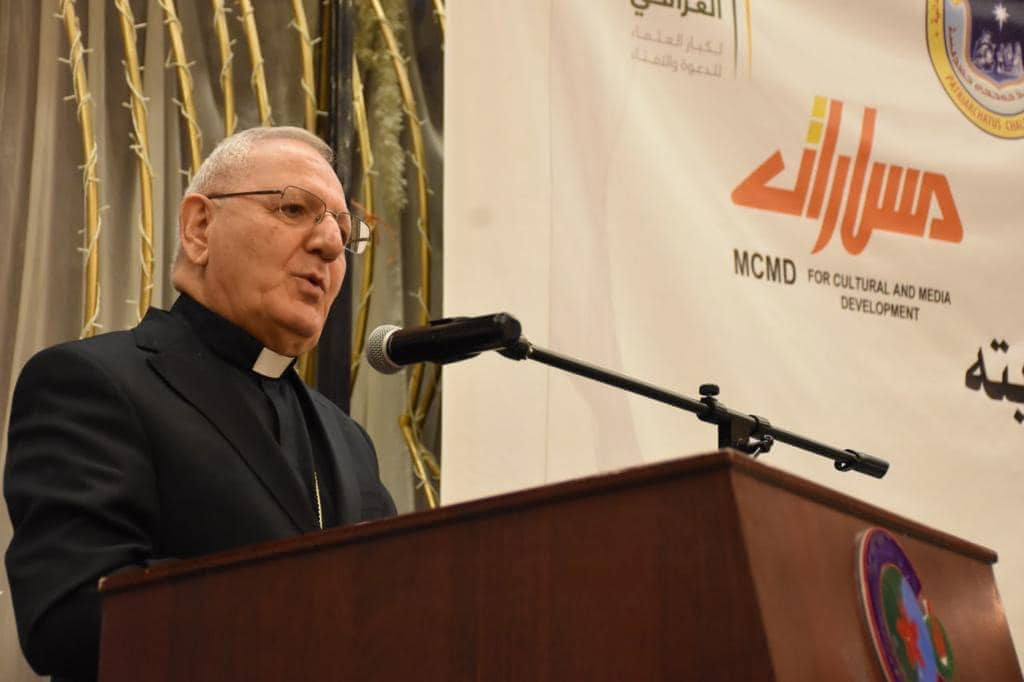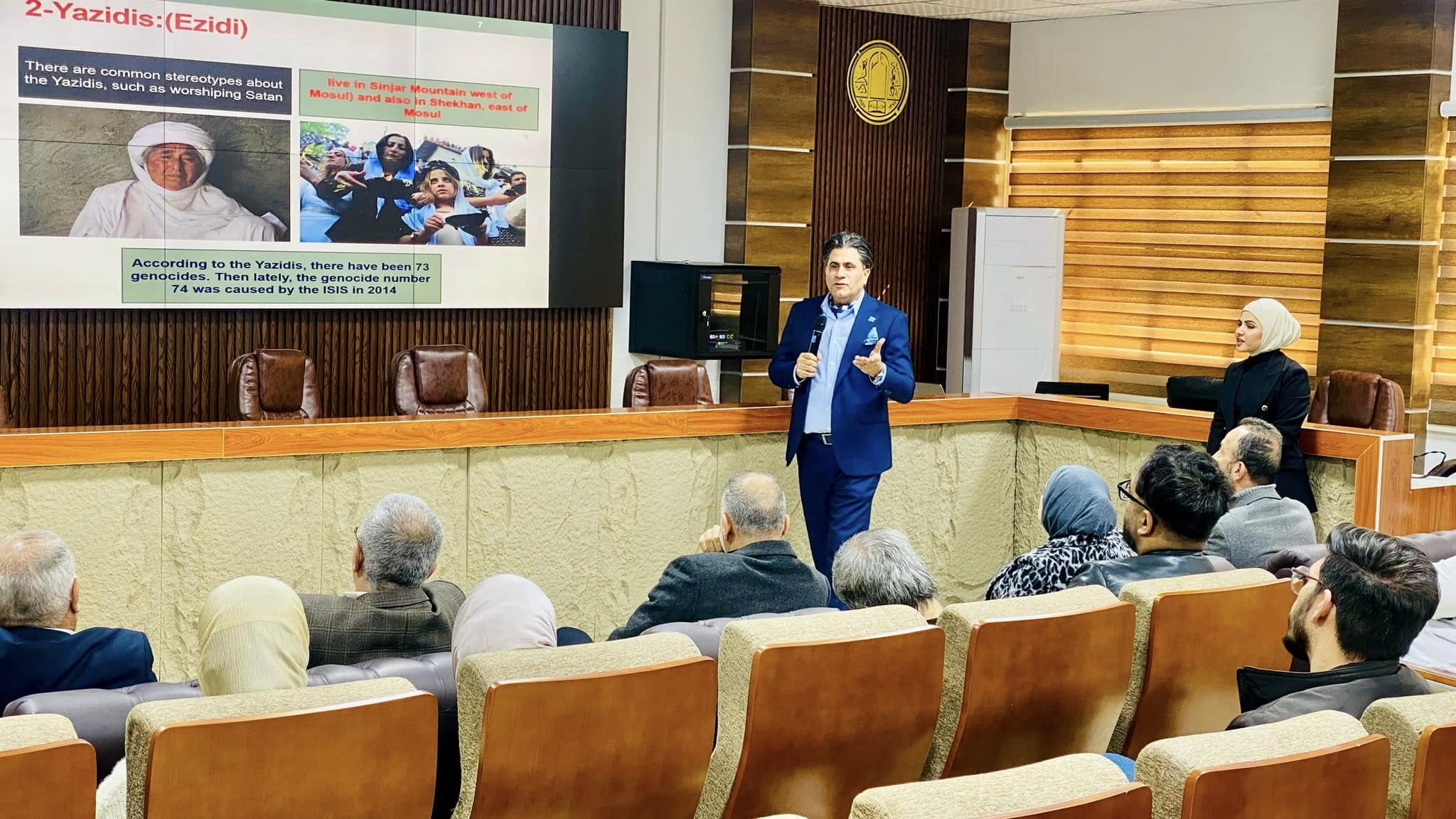In collaboration with International Heart Land Masarat Foundation for Cultural and Media Development has managed to hold a workshop of the spiritual meeting of peace-builders. That workshop was attended by clerics, Iraqi society’s components’ representatives, and teachers of religious sciences colleges, United Nations delegation, and a number of women who study religious sciences.
Saad Saloum, the general coordinator of Masarat, has inaugurated the spiritual meeting activities with an introduction to that meeting, stressing that the dialogue between social components’ representatives is not enough to solve basic problems, but it may be a step towards the right path.
Mr. Salloum said that the dialogue is not just intellectual and religious process. That is, it must motivate the silent majority to find solutions to current violence and promote tolerance. On the other hand he focus on extending the dialogue to include those who are not biased to their religions, non- monotheist religions followers, and religious minority’s representatives.
Any dialogue can make use of women’s views, which are marginalized on many occasions due to religious extremism. Mr. Salloum said.
Salloum gave opening address. After that Satar Jabar Al-Hilo, president of mendaeans sect in Iraq and the world gave his speech in which he said that there are not serious differences between religions as long as they call for peace. Satar also said that the meeting came amid critical situations such as emigration and terrorist acts, which target Iraqi minorities.
Louis Raphael I Sako, president of the Chaldean church in Iraq and the world, who praised the meeting, saying peace, is not just words, but urgent need, which can be built gradually.
Deputy Amir Tahsin bek, presidents of Yazidis in Iraq and the world, clarified the challenges that Iraqi minorities face, laying emphasis to find a new approach to protecting minorities in Iraq and the Middle East.
The first session of the workshop, which was on Iraqi minorities situations was under management of D.Amina Al-Dahabi, chief executive of Masarat.
At that session minorities’ representatives such as father Ara Bidlian and Saab Khider, a Yazidis representative on Yazidis situation after 2014 Sinjar’s disaster, stated to challenges they face, whether those which were imposed on them by ISIS or daily social discrimination in central , southern and northern Iraq .
Saad Al- Shabaki, a researcher, focused at his speech on situations of Shabaks in Ninawa plain. Adai Assad clarified Mendaeans situations and the reasons for their emigration, saying they are endangered sect. Thiaa Yaqoob spoke about Baha’is situation. Rajab Aasi clarified the difficulties that the Kaka’is faces in Kirkuk. Finally, Nermeen Al-Moufti talked on Turkmen situations in Kirkuk in particular.
The second session was on Islamic Sharia attitude to citizenship and diversity. At that session a number of Hawza teachers from Najaf and karbala, as well as religious college teachers took part.
The participants clarified the importance of countering hate address and how clerics are recruited by politicians to incite sectarianism.
Consequently, the participants pay great emphasis on institutionalizing dialogue and maintaining it against isolation and misunderstanding.
The final session devoted for drafting recommendations and closing statement.
Statement of Spiritual Meeting of Peace-builders
As long as Iraqi clerics as peace-builders believe in the supernal principles (Which covered by religions) and the positive role of supernal messages’ leaders in creating societies enjoy peace, those clerics resort to dialogue as an optimal mechanism for peace.
To promote culture of tolerance and peaceful coexistence we lay focus on dialogue between various parties. Consequently, all sides are accountable for keeping the diversity of the Iraqi society according to the fact that there will not be serious dialogue without diversity.
Currently, Iraq is suffering from enormous crises, such as violence, mistrust, misunderstanding, politicizing religious instructions and emigrating of a large number of youth abroad. This requires functional efforts to counter sectarianism and its sources (especially the extremist interpretation of religions).
There being religions can play a pivotal role in terms of solving crises instead of complicating them, that they must be prioritized to bring Iraqi into perpetual peace.
The dialogue cannot prosper without respecting the religious pluralism .Religious and ethnic pluralism occupies a central position in preventing social isolation and sectarianism, with respect to any social component to exercise its rituals freely.
Peace-builders belong to one Iraqi family; there are not huge differences between them. Therefore, they face the same fate and hope of good standards of living.
The dialogue that we are talking about is not just statements or emotional factors .that is, it represents a real desire for building positive relations in attempt to meet Iraqis need to justice, peace and freedom.
Consequently, the workshop arrived at some recommendations (represents a joint work program):
1-Clerics and civil leaders must work together to keep Iraqi pluralism through cohesive dialogue between peace-builders.
2-The dialogue must be extended to include intellectuals, academics, civil society activists, and religious and civil scientists. This can create real citizenship.
3-Inspiring moderate addresses instead of hate addresses, which pave the way for a reformist project concentrating on moderate attitudes, which conform to the supernal messages pushing for peace.
4- Defending rights to belief freedom, thinking, choosing religions and nationalities for all Iraqis in the light of the Iraqi constitution and international treaties.
5- Countering all kinds of discriminations, which depend on beliefs, religions, races, colors and sex, and any acts humiliating human’s dignity .
6- Respecting religious and ethnic pluralism by adopting curriculums comply with the heterogeneous character of the Iraq society and promote that character in building democratic and united Iraq.
